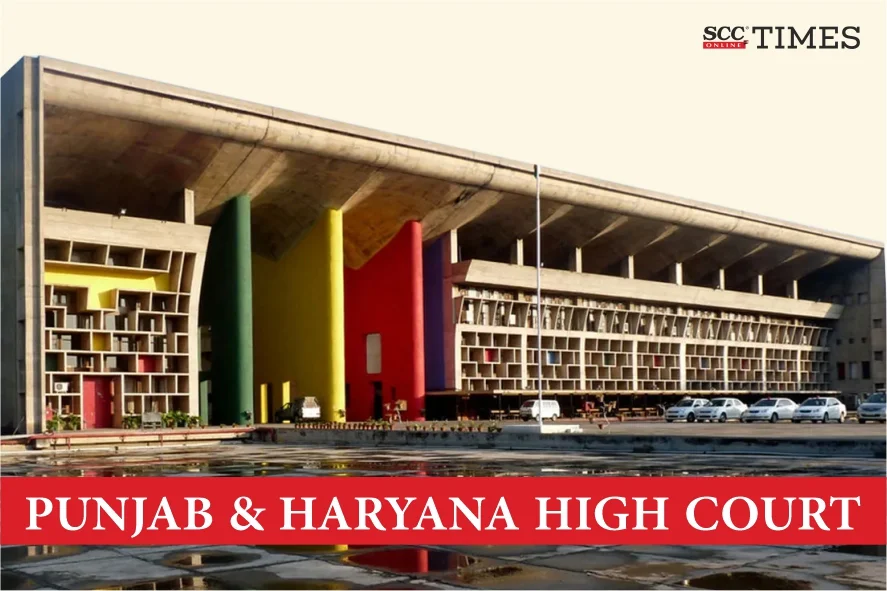Punjab and Haryana High Court: In a set of three writ petitions filed seeking direction to the State of Punjab to remove the police force deployed at the Bhakhra Nangal Dam and Lohand Control Room Water Regulation Offices (‘Control Rooms’) and for release of 8500 cusecs (‘cs’) water in the Bhakra Canal according to the decision taken by the Bhakra Beas Management Board (‘BBMB’), the Division Bench of Sheel Nagu*, CJ., and Sumeet Goel, J., disposed the petitions, holding that Punjab ought to have represented its dissent before the Central Government which it did not. The Court also restrained Punjab and its functionaries from interfering in the day-to-day functioning, operation, and regulation of the Control Rooms and directed it to abide by the decision to release water to Haryana.
Background
On 23-04-2025, the Technical Committee of the BBMB decided to release 8500 cs water to Haryana, which Punjab did not comply with due to the non-placement of an indent to the BBMB. Resultantly, no water was released for 8 days from 24-04-2025 to 01-05-2025. This compelled the BBMB to release 8500 cs water from 01-05-2025 as a one-time relaxation, even in the absence of the placement of an indent by Punjab. This decision included 500 cs of water for Rajasthan and 496 cs for Delhi. The BBMB also resolved to attempt to look after the needs of the State of Punjab during the filling period of the Dam.
Since the members of Punjab did not agree to the decision of releasing extra water to Haryana beyond 4000 cs, the Chairman of the BBMB asked Haryana to place the indent directly to the BBMB for revised releases and ensure releases to Rajasthan and Delhi. Punjab objected to this, stating that Haryana had overdrew to the extent of 3.13 MAF (Million Acre Feet) against their agreed share of 2.987 MAF, and similarly, so did Rajasthan.
On 01-05-2025, allegedly, Punjab forcibly took control of the operations and management of the Control Rooms by deploying a large number of police personnel with the ultimate object of forcibly preventing the BBMB from releasing water to Haryana.
Aggrieved by such intervention, the present petitions were filed.
In a meeting convened on 02-05-2025 under the Chairmanship of the Home Secretary, Government of India, it was decided that 4500 cs of extra water would be released by BBMB to Haryana for the next eight days to meet its urgent water requirement. It was also agreed that during the filling period of the dam, BBMB would provide this excess water to Punjab to fulfil their additional requirements.
Analysis
At the outset, the Court stated that the Parliament under Article 262 of the Constitution is vested with the power to promulgate law provided for adjudication of any dispute or complaint concerning the use, distribution, or control of the water of, or in, any inter-State river or river valley. The Punjab Reorganization Act, 1966 (‘the Act’), is the manifestation of Article 262(1), which provides for deciding the rights and liabilities of the successor States which were created on the reorganization of the original State of Punjab, including certain other States like Rajasthan and Delhi. Further, in exercise of the said power vested in Section 97 of the Act, the BBMB Rules, 1974 (‘the Rules’) were framed, which inter-alia provides that in case of dissent by any member of BBMB such dissenting member can represent to the Central Government through the Chairman of BBMB whereupon the Central Government shall decide the dispute.
Noting the aforesaid, the Court stated that since there was an alternative statutory remedy available to a dissenting State, Punjab in all fairness ought to have represented before the Central Government, but no such representation was made by the State of Punjab. The Court stated that if the allegation that the deployment of force by Punjab at the Bhakra Dam was causing obstruction in the functioning and working of BBMB was correct, then such interference could not be appreciated. The Court stated that the Punjab Police was always free to provide adequate security to the BBMB and its personnel, but it could not interfere in the day-to-day functioning of the BBMB to obstruct the operation and management of the Bhakra Dam and water-related works.
In the light of the aforesaid discussion and the limited expertise available to the Court regarding water management between two or three States, the Court deemed it appropriate to dispose of the petitions in the following terms:
-
Punjab and any of its functionaries, including police personnel, were restrained from interfering in the day-to-day functioning, operation, and regulation of the Control Rooms managed by BBMB. However, Punjab was always free to extend security to the Bhakra Nangal Dam and the personnel of BBMB as per law.
-
Punjab was directed to abide by the decisions taken in the meeting held under the Chairmanship of the Home Secretary.
-
In case Punjab did not agree to any decision taken by the BBMB, then it was free to invoke Explanation-II to Rule 7 of the Rules by making a representation to the Central Government through the Chairman of the BBMB, which, if made, shall be decided by the Central Government expeditiously.
[Bhakra Beas Management Board v. State of Punjab, 2025 SCC OnLine P&H 2287, decided on 06-05-2025]
*Judgment authored by: Chief Justice Sheel Nagu
Advocates who appeared in this case :
For the petitioner: Senior Advocate Rajesh Garg, Neha Matharoo, Mandeep Singh, R.K. Narwal, R. Kartikeya, R. Akanksha, Sidhi Bansal, Ridhi Bansal, Kartik Patial, and R.S. Dhull
For the respondent: Senior Advocate Gurminder Singh, Advocate General of Punjab Maninderjit Singh Bedi, Addl. Advocate General of Punjab Maninder Singh, Jatinder Singh Gill, Advocate General of Haryana Pravindra Singh Chauhan, Addl. Advocate General of Haryana Deepak Balyan, Addl. Advocate General of Haryana Naveen S. Bhardwaj, Addl. Solicitor General of India Satya Pal Jain, and Senior Counsel Dheeraj Jain



